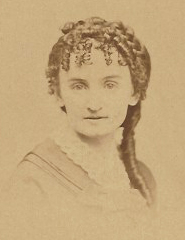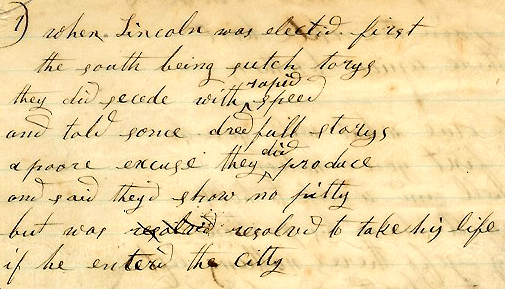
It was November 12, 1864, and members of the 12th Kentucky Infantry were pondering the results of the presidential election held four days earlier.
Camped near Spring Hill, Tennessee, William Ballew wrote to friend Thomas Hopkins in Clinton County that his regiment had shown a strong preference for “Little Mac” – the nickname of President Abraham Lincoln’s challenger, Major General George B. McClellan. Earlier, Lincoln had relieved McClellan of his command after becoming frustrated with his innate caution and failure to produce results on the battlefield. Though popular with the average soldier, McClellan had run for president as the candidate of a Democratic Party hobbled by its split over what to do about the war.
While Pvt. Ballew himself was unsure which candidate would “be the best for the US,” he claimed access to a “decision desk” of his own, namely the votes of the African Americans in Nashville. Five thousand of them, he reported, had “voted for abe.” Ballew forecast “that if the election is carryed on every whare like it was in nashville that abe will be reelected for the negroes had the same privalege of voteing that the white man has.”
Ballew didn’t realize that what he had witnessed was only a mock election, conducted by a still-disenfranchised community demonstrating its intention to secure the “privalege” of the vote. On Election Day, about 3,200 African Americans had assembled on College Street to participate in a symbolic poll that gave all but one of their votes to Lincoln. The initiative came after a delegation of Tennessee freedmen returned from the National Colored Men’s Convention in Syracuse, New York determined to press their demands for equality and the abolition of slavery. It turned out, of course, that their “votes” were prescient. While McClellan carried Kentucky, he secured only 45% of the national vote and lost the election to Lincoln.
William Ballew’s letter is part of the Manuscripts & Folklife Archives of WKU’s Department of Library Special Collections. Click here to access a finding aid and typescript. For more collections relating to the Civil War and elections generally, search TopScholar and KenCat.




